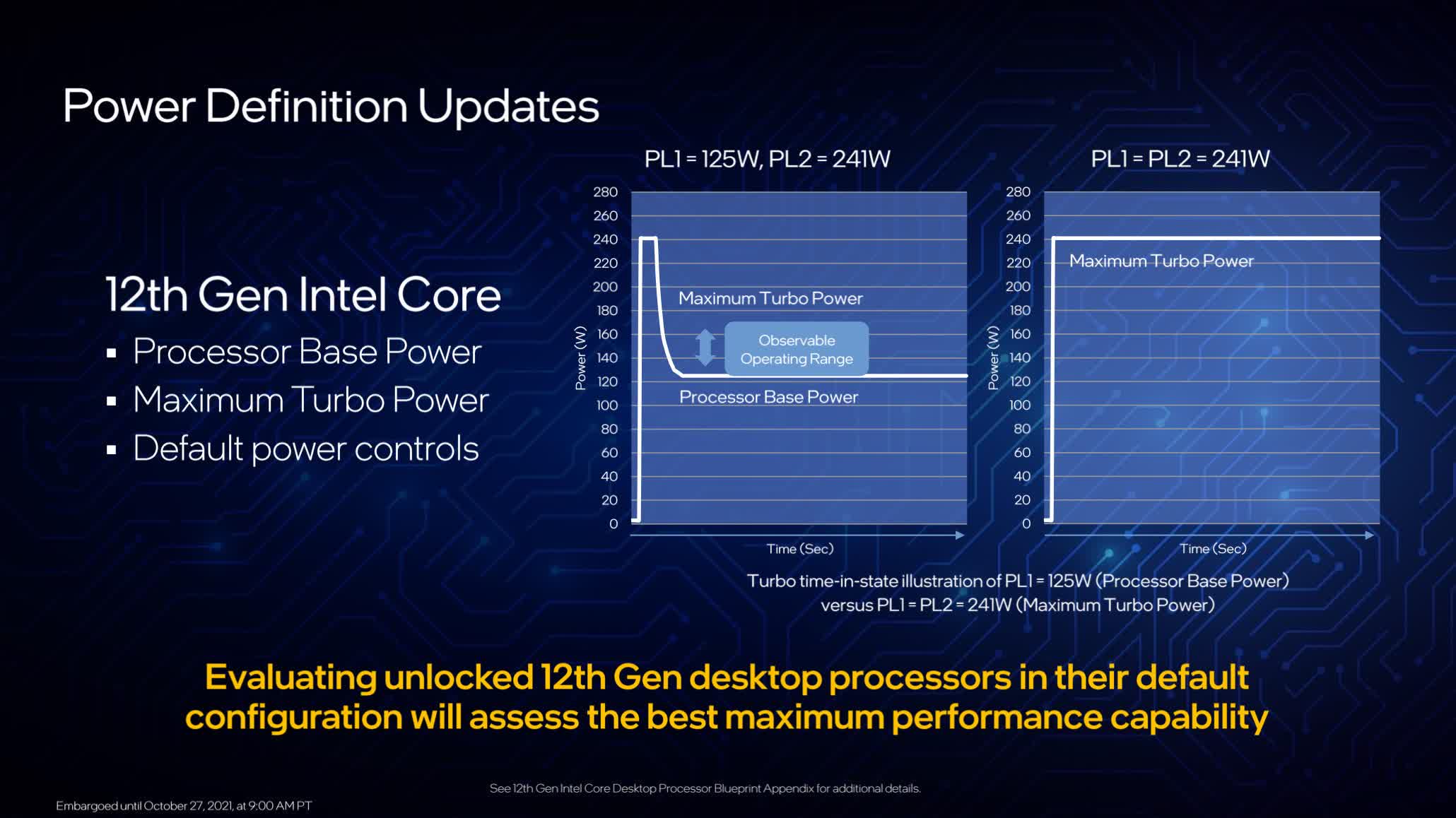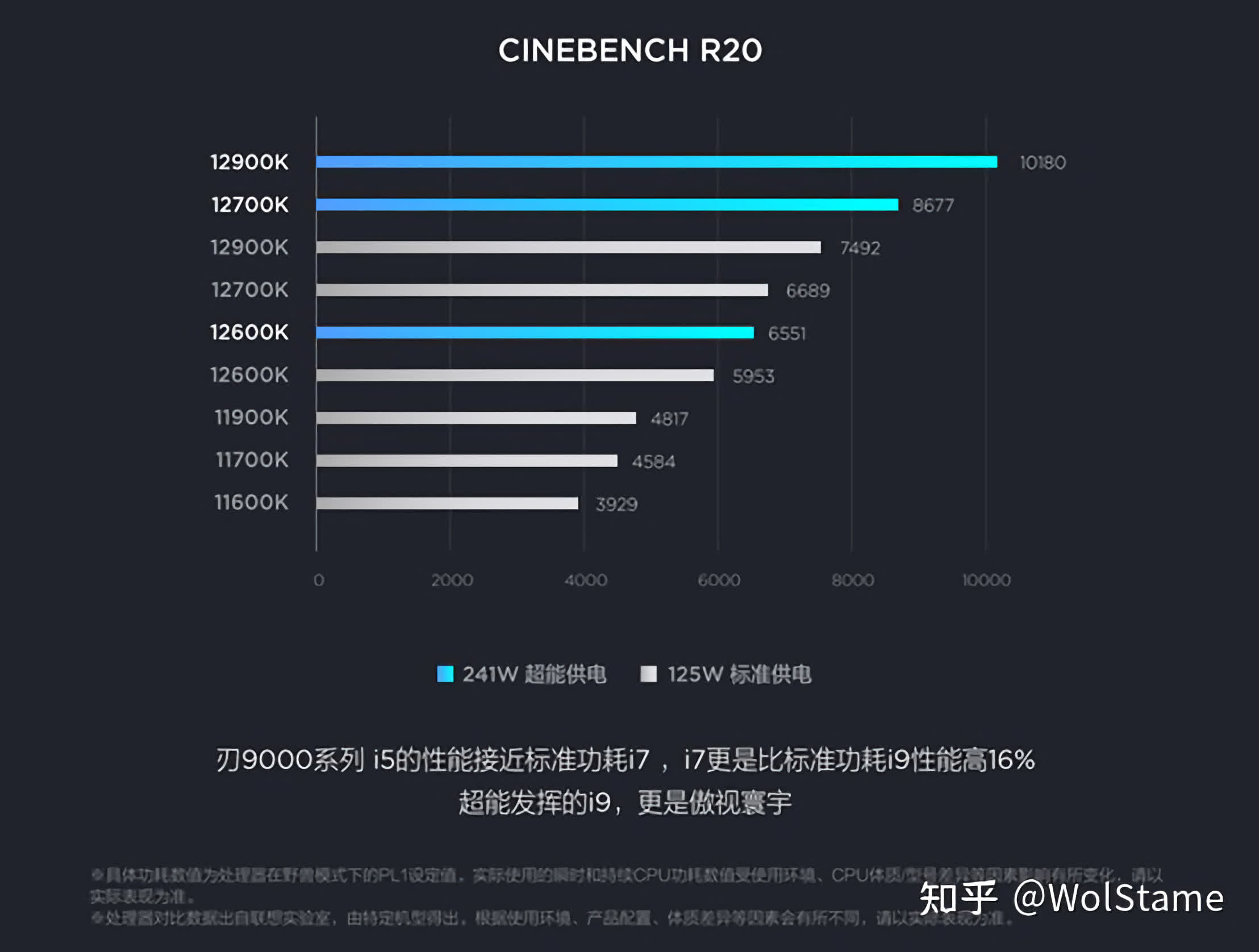In brief: Intel’s 12th generation Core processors are right around the corner, and everything we’ve seen so far indicates they’ll be faster than their Rocket Lake predecessors and at least as fast as AMD’s Ryzen 5000 series CPUs. A newly leaked benchmark seems to confirm that Alder Lake CPUs achieve this higher performance at a high power cost.
Intel’s first batch of Alder Lake CPUs is now official, but outside of a few lucky Newegg customers and some prolific leakers, very few people have access to one for any real-world testing.
If we go by Team Blue’s marketing claims, these new processors are supposed to be the first salvo fired back at AMD in the fight for the x86 performance crown. However, they’re also not directly comparable with existing x86 processors from AMD as well as Intel’s own offerings, since they use a hybrid architecture and can be more power-hungry during certain workloads.

One of the notable changes brought by Alder Lake is that Intel is redefining the power needs of its CPUs to offer a more realistic picture in spec sheets. Specifically, the company is deprecating the term “TDP” in favor of two new metrics — processor base power (PBP) and maximum turbo power (MTP). These are essentially the PL1 and PL2 power limits as defined in previous generations of Intel CPUs, and will allow consumers to make a more informed decision when buying these new models.
A detailed analysis of how these new CPUs perform in various workloads is coming, but since it’s still under embargo, we can only look at leaked performance numbers as we have for the past several months.
As spotted by Twitter user @9550pro, Weibo user WolfStame — who happens to be the Gaming Desktop Product Planning Manager of Lenovo’s China branch — accidentally posted a chart comparing Cinebench R20 test results for Alder Lake CPUs to previous generation Rocket Lake parts.

As you’d expect, all Alder Lake enthusiast-grade processors smoke their predecessors in the multi-threaded test. However, the more interesting aspect of the leaked chart is that it includes scores for both the 125-watt base power and the 241-watt turbo power modes of operation.
Looking at the results, the Core i9-12900K scores 7492 points when operating at base power and 10180 points when operating at maximum turbo power, which is a 36 percent performance boost at almost double the power consumption. The Core i7-12700K scores 6689 and 8677 points, respectively, which means you can squeeze up to 30 percent more performance in turbo mode (190 watts). No surprises here, but if you look at the Core i5-12600K, the performance boost is a modest 10 percent — barely worth the jump from 125 watts to 150 watts.
This seems to confirm earlier rumors that Alder Lake CPUs will be cutting-edge space heaters. To sweeten the deal, Intel is launching the new processors with aggressive pricing, although we’ll have to see how that translates for consumers in the coming weeks and months. However, LGA 1700 motherboards won’t be cheap and DDR5 memory kits already cost an arm and a leg — that is, if you manage to find any in stock at retail. Overall, it looks like early adopters for Alder Lake will have to pay dearly for the privilege.

